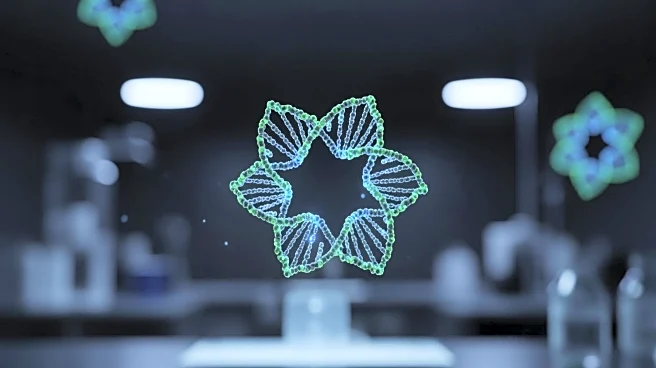What's Happening?
Procter & Gamble (P&G) has introduced a new waterless hair care product line called Gemz in the United States. This innovative product, which has been 14 years in development, features a single-dose formula activated by water at the point of use. The
dissolvable palm-sized tiles provide a concentrated dose of shampoo or conditioner, allowing consumers to mix and match based on their hair's changing needs. The hexagon-shaped discs are free from water, fillers, or waxes, and are designed to deliver exceptional cleaning benefits while reducing excess build-up. The launch includes five shampoos and five conditioners, available at Target, and is described as a science-enabled response to modern consumer needs.
Why It's Important?
The introduction of Gemz by P&G marks a significant shift towards sustainable beauty products, addressing growing consumer demands for environmentally friendly options. This innovation not only offers convenience and high performance but also aligns with the broader trend of reducing water usage in beauty products. By eliminating water and unnecessary fillers, P&G is setting a precedent for other companies in the industry to follow suit. This move could potentially influence the market dynamics, encouraging more brands to explore waterless formulations, thereby impacting the $164-billion global skin-care industry. Consumers stand to benefit from more sustainable and customizable hair care solutions.
What's Next?
As P&G's Gemz gains traction in the U.S. market, other beauty brands may look to develop similar waterless products to compete. The success of Gemz could lead to an expansion of the product line or inspire innovations in other categories within the beauty industry. Retailers like Target may see increased demand for sustainable beauty products, prompting them to stock more eco-friendly options. Additionally, consumer feedback will likely play a crucial role in shaping future product developments and marketing strategies.
Beyond the Headlines
The launch of Gemz highlights the ethical dimension of sustainability in the beauty industry, emphasizing the importance of reducing environmental impact. This development could lead to long-term shifts in consumer behavior, with more individuals prioritizing eco-friendly products. The focus on waterless technology also raises questions about the future of traditional beauty formulations and the potential for broader industry changes.
















